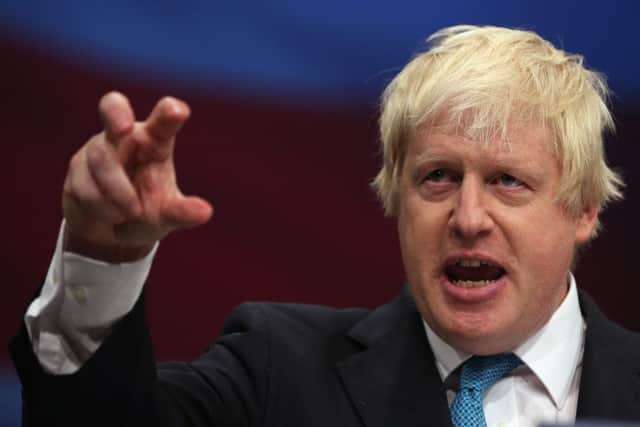Andrew Whitaker: All to play for in London Mayor election race


Ever since the post of an elected London mayor was created in 2000, 14 years after Margaret Thatcher abolished the Greater London Council (GLC) during which time the capital was left without an elected city-wide authority, the mayoral election has always attracted more interest than the average local government contest.
Ken Livingstone’s election as mayor in 2000 as an independent, after effectively being blocked by Tony Blair from standing as Labour’s official candidate, was significant in that it was the first real defeat for the New Labour project.
Advertisement
Hide AdAdvertisement
Hide AdLikewise Livingstone’s re-election in 2004, this time on a Labour ticket, lent itself to Blair needing the left winger, who has been popular in the capital since his halcyon days as GLC leader in the 1980s, back in the party fold as the government of the day faced unpopularity over the last Iraq War.
As for Boris Johnson’s victory in 2008, that was largely on the back of the unpopularity of Gordon Brown’s government, although Livingstone did come close to staying in power and bucking the national trend against Labour of that time.
Last time around in 2012, Livingstone’s failure to make another comeback and dislodge Johnson was a blow to Ed Miliband’s doomed bid to become Prime Minister.
Results in London last May were open of the few bright spots on a grim night for Labour, and the party is now well placed to take back the mayoralty for the first time in eight years in this year’s election for the post.
However, London has been one of the most politically marginal areas of the UK at elections for decades, particularly the outer parts of the capital, with the inner boroughs tending towards Labour.
The election on 5 May also represents what is the first real electoral contest for Jeremy Corbyn, although Labour in fairness confounded many predictions by retaining its safe seat of Oldham West and Royton much more comfortably than many predicted in a by-election in the Lancashire town in December.
With Corbyn sitting in the Commons as a London MP, for the constituency of Islington North, the mayoral contest also takes on added significance and there will be some of his detractors in the party who may even hope that losing the election to the Tory candidate Zac Goldsmith would be enough to kickstart the beginning of the end for his leadership.
However, Labour’s candidate Sadiq Khan, is as solid a candidate as Corbyn could have wished to put up against serving Tory MP Goldsmith, who will be no pushover.
Advertisement
Hide AdAdvertisement
Hide AdKhan, who was one of Ed Miliband’s best performing shadow ministers in the last parliament in the justice brief, is an astute campaigner who will take the fight to Tories, who have now run London for eight years, on policy areas like rising transport fares and austerity.
A Labour win in London would of course be a blow to whoever succeeds David Cameron as Tory leader given the marginal nature of the city electorally. However, a more comfortable than expected win for Khan could cement Corbyn’s position, particularly if achieved against a backdrop of predicted poor results for Labour, and put him in genuine contention at the 2020 general election, despite the long electoral road that lies ahead.